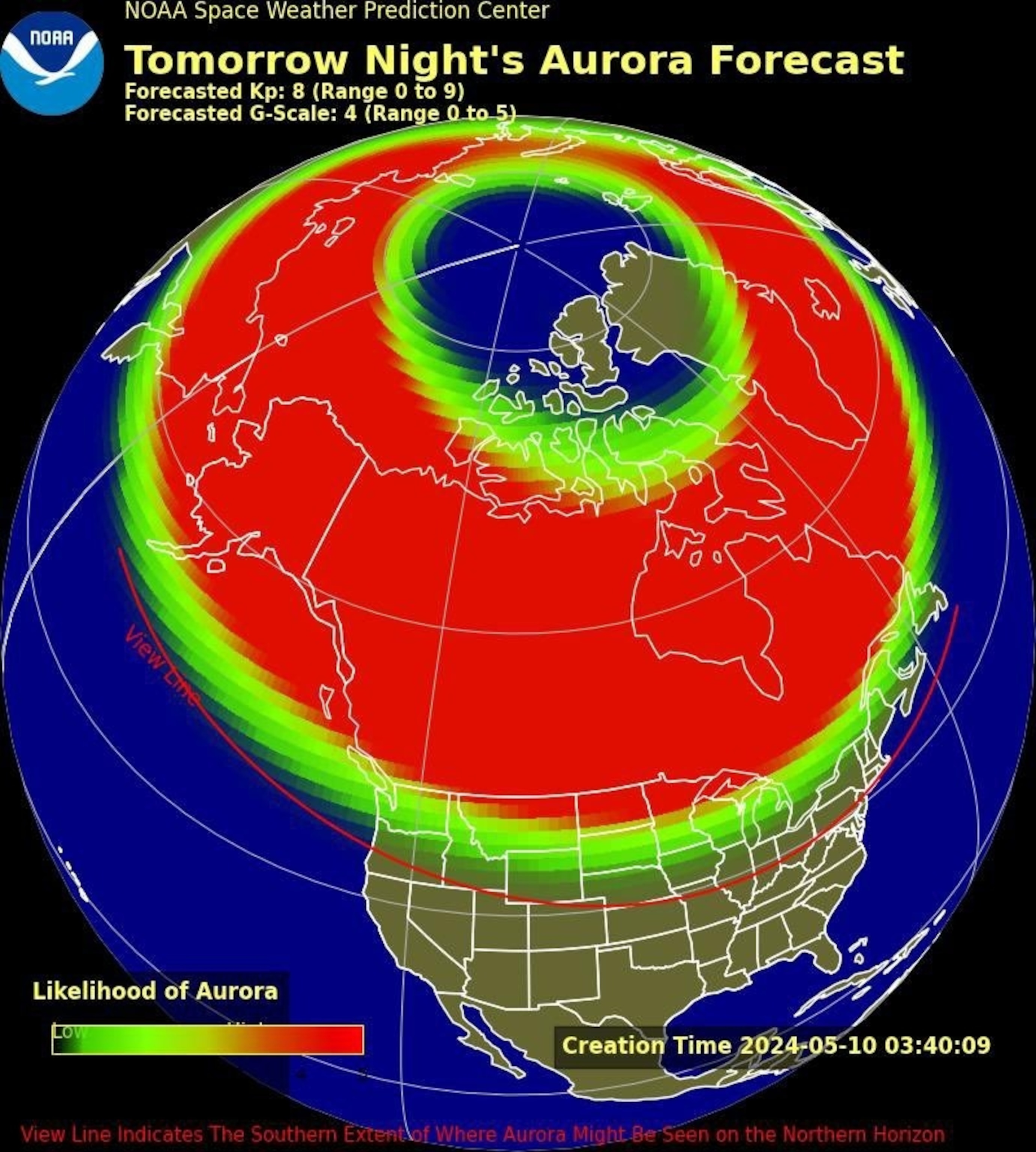Northern lights could be seen as far south as Alabama this weekend: NOAA
This is NOAA's first severe storm watch in nearly 20 years.
Americans across the country may get a chance to see the northern lights this weekend.
A series of solar flares and "explosions" from the sun may lead to geomagnetic storms that "can also trigger spectacular displays of aurora on Earth" from Friday evening through the weekend, the National Oceanic and Atmospheric Administration's (NOAA) Space Weather Prediction Center said on Thursday.
Because the geomagnetic storms are severe, Americans in many of the northern states and some in the lower Midwest will likely see the aurora borealis. But lights may be seen as far south as Alabama, according to the federal agency.
This is NOAA's Space Weather Prediction Center's first severe geomagnetic storm watch in nearly 20 years.
The solar flares, which began Wednesday around 5 a.m. ET, are associated with coronal mass ejections (CMEs) directed toward Earth.

CMEs are expulsions of plasma and magnetic field from the sun's corona, the outermost part of the sun's atmosphere, according to the SWPC.
When these ejections head toward Earth, taking as long as days or as little as 15 hours, they cause geomagnetic storms, which are disturbances in the magnetic field around the planet.
"Then fast-moving particles slam into our thin, high atmosphere, colliding with Earth's oxygen and nitrogen particles," according to NASA's Jet Propulsion Laboratory. "As these air particles shed the energy they picked up from the collision, each atom starts to glow in a different color," giving us the aurora borealis in the northern hemisphere and the aurora australis in the southern hemisphere.
The SWPC recommends traveling away from city lights to experience the full brightness of the aurora and to be looking at the skies within two hours of midnight, between 10 p.m. and 2 a.m. local time.
Beautiful ribbons of lights are not the only result of geomagnetic storms.
These storms also have the ability to potentially disrupt communications, the electric power grid, radio signals and satellite operations. SWPC said it has notified operators of the various systems so they can take protective action.
Severe geomagnetic storms in October 2003 caused the northern lights to be seen as far south as Texas but it affected more than half of all Earth-orbiting spacecrafts and temporarily disrupted satellite TV and radio services. Additionally, several deep space missions had to be put in safe mode or completely shut down to prevent them from being disrupted.
"As far as the worst situation expected here at Earth, that's tough to say and I wouldn't want to speculate on that," NOAA space weather forecaster Shawn Dahl said during a media briefing on Friday. "However, severe level is pretty extraordinary. It's a very rare event to happen."




